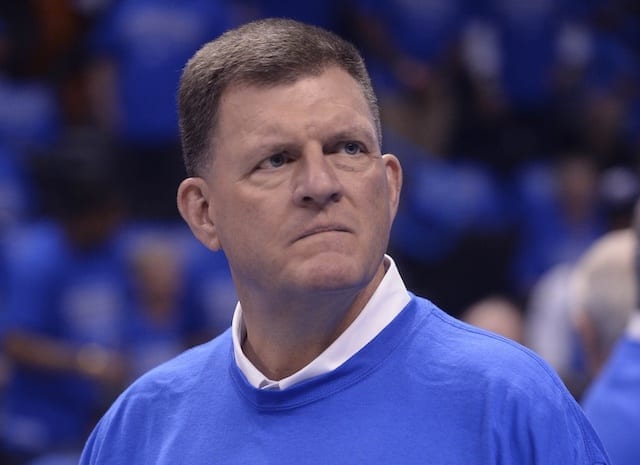After weeks of evaluating several return-to-play formats, NBA commissioner Adam Silver reportedly is expected to present a 22-team plan for an Orlando bubble and hold a formal vote Thursday.
The vote to take 22 teams to Walt Disney World is expected to overwhelmingly pass. Of course, there remains plenty of speculation regarding what comes of the remaining eight teams that will continue to be on hiatus since the NBA shut down the season back in March.
Teams have already had to take unprecedented action amid the coronavirus (COVID-19) pandemic in order to deal with the financial blow they suffered during the unexpected suspension. Since the NBA doesn’t appear likely to have all 30 teams resume play, parties are now dealing with different circumstances in order to get back on track.
The prospect of going nine months without games could certainly have a major impact both on and off the court with player development and ticket sales taking a major hit. As a result, it seems small-market teams are trying to figure out a way to somehow level the playing field.
According to ESPN’s Adrian Wojnarowski and Zach Lowe, Oklahoma City Thunder team owner Clay Bennett outlined the issues that come with a 22-team return:
Near the end of the NBA’s Board of Governors call on Friday, Oklahoma City Thunder owner Clay Bennett delivered an impassioned soliloquy on why the league and owners needed to consider the competitive and financial plights of smaller market teams that could be left out of the season’s summer resumption in Orlando — and the potential symbolic power of all 30 teams gathering there to play as one united association.
Although the NBA is likely to move ahead with 22 teams, the league is taking those on the outside looking in into consideration:
For those teams left out of the playoffs, there has already been dialogue on the possibility of mandatory summer training camps and regional fall leagues of four-to-five teams that could bridge the lengthy gap between seasons, sources told ESPN.
Teams like the Los Angeles Lakers and Boston Celtics are well-equipped to deal with the strains of the pandemic, but the same cannot be said for some of the small-market franchises. While the league is focused on doing what it can to crown a champion this season, they must take into account the importance of maintaining a level playing field for years come.
The onus will fall on Silver and the NBPA to determine just how much of an advantage the teams that finish the season will have over those that do not.





